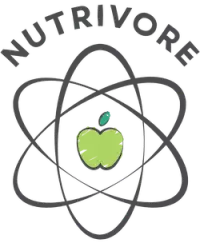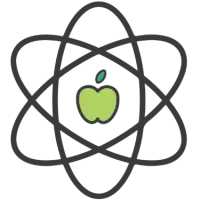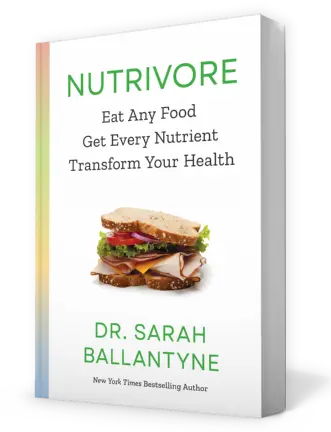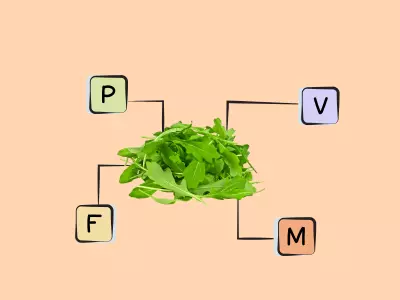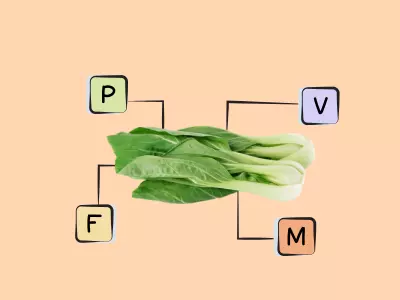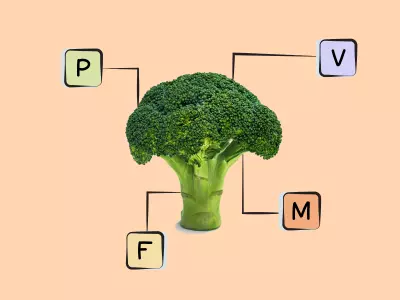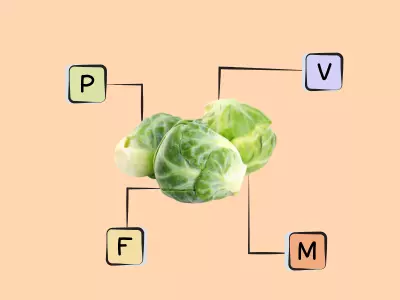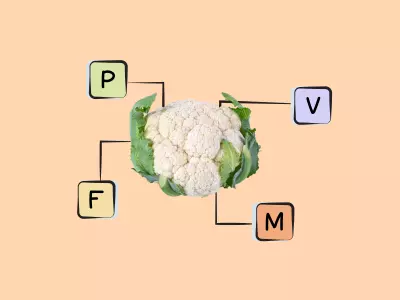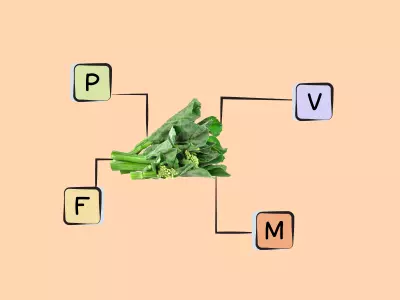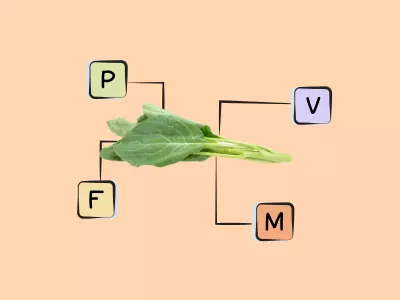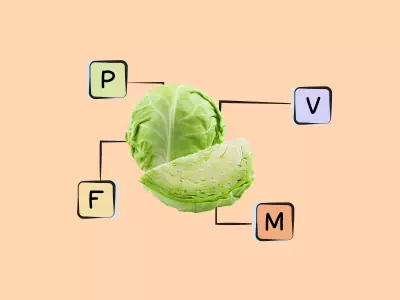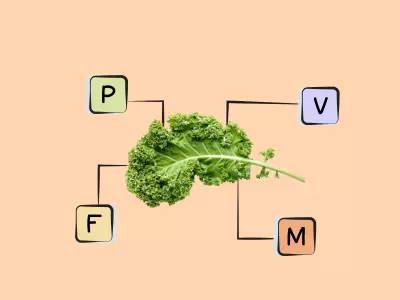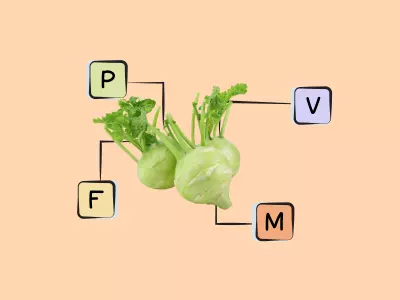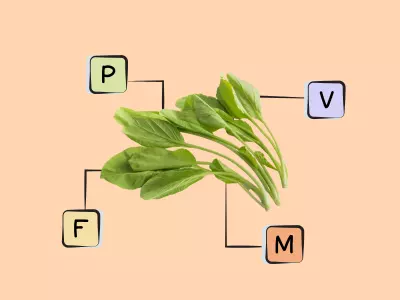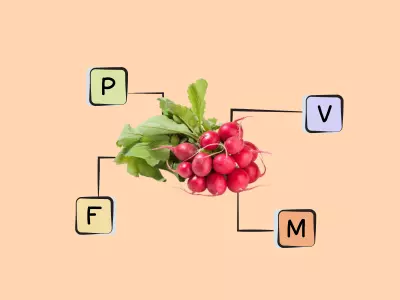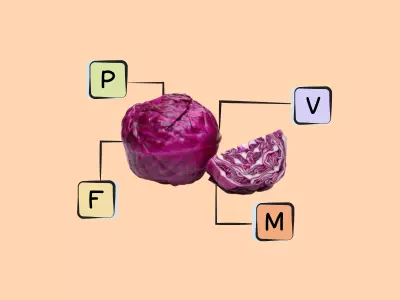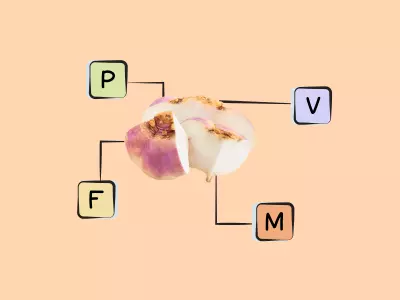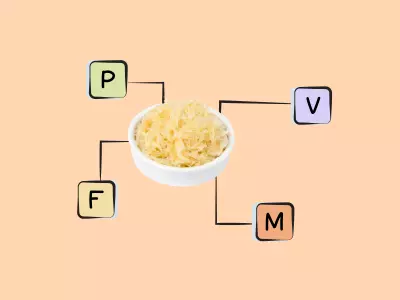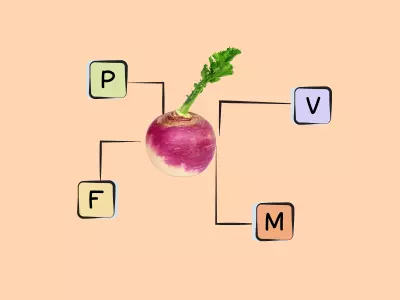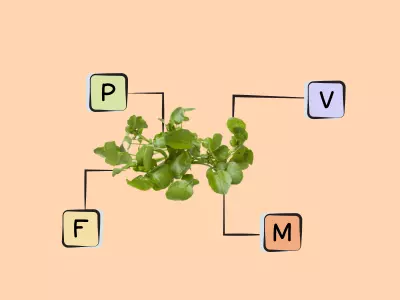Table of Contents[Hide][Show]
Health Benefits of Cruciferous Vegetables
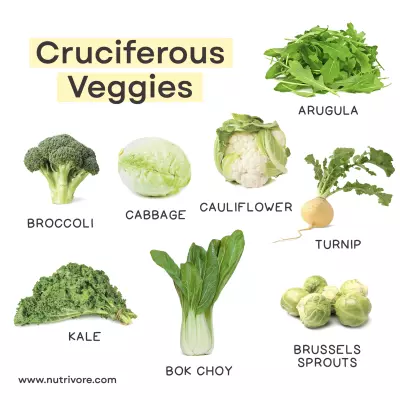
Cruciferous vegetables, also called Brassicas or the cabbage family, are members of the Brassicaceae family, many of which are actually cultivars of a single species (Brassica oleracea): cabbage, Savoy cabbage, cauliflower, broccoli, Brussels sprouts, collard greens, kohlrabi, gai lan, and kale! Additional crucifers include cultivars of Brassica rapa (turnips, napa cabbage, bok choy, and rapini), horseradish, watercress, garden cress, radish, daikon, collard greens, rutabaga, and mustard greens. The term “cruciferous” comes from the Latin cruciferae, which means “cross-bearing” and refers to the shape of these plants’ flowers.
All of these veggies are powerhouses of nutrition and linked to numerous health benefits, including lower risks of all-cause mortality (general measure of health and longevity), cardiovascular disease and cancer. Cruciferous vegetables are high in dietary fiber and rich in vitamins and minerals, but even more impressive is the array of beneficial phytonutrients that crucifers are famous for (especially sulfur-containing glucosinolates).
Let’s take a look at the health benefits associated with cruciferous vegetable consumption, in general!
Cruciferous Veggies Reduce Cardiovascular Disease Risk
A study found a 22% reduced risk for total mortality and 31% reduced risk for cardiovascular disease mortality among individuals with the highest intake of cruciferous vegetables.
A 2017 systematic review and meta-analysis, which included data from 95 studies that evaluated fruit and vegetable intake, showed eating 100 grams of cruciferous vegetables per day (about 1 serving), on average, led to an 18% decrease in ischemic stroke, a 17% decrease in hemorrhagic stroke, a 16% decrease in total cancer risk, and a 12% decrease in all-cause mortality and cardiovascular disease. Wow!

A 2011 analysis of the Shanghai Women’s Health Study and Shanghai Men’s Health Study (encompassing 134,796 adults) found a 31% reduced risk for cardiovascular disease mortality and a 22% reduced risk for total mortality among individuals who ate 1 or 2 servings of cruciferous vegetables daily (average of 166 grams per day for women and 208 grams per day for men) compared to those with the lowest cruciferous vegetable intake, only 1 or 2 servings of cruciferous vegetables per week (average 28 grams per day for women and 34 grams per day for men).
A 2019 meta-analysis showed that cruciferous vegetables were some of the most important fruits or vegetables to consume on a daily basis (root vegetables and green leafy vegetables were also important, as were mixing up eating raw versus cooked vegetables). For every 100 grams of cruciferous vegetables consumed daily, risk of cardiovascular disease decreased by 11% and risk of all-cause mortality decreased by 10%.
One 2014 human trial also found that eating a high-cruciferous-vegetable diet reduced some markers of inflammation associated with several disease states (particularly the inflammatory cytokine interleukin-6 [IL-6]), pointing to one mechanism through which cruciferous vegetables reduces cardiovascular disease risk.
Cruciferous Veggies Reduce Cancer Risk
Cruciferous vegetables are a unique source of a class of phytonutrients, called glucosinolates, which are particularly well-known for their cancer prevention benefits. Glucosinolates produce isothiocyanates when the vegetable is damaged (for example, sliced, crushed or chewed), and many of these are known to upregulate genes involved in protecting against DNA damage, inflammation, and oxidative stress, as well as increase the activity of phase II detoxification enzymes (such as quinone reductase and glutamate cysteine ligase) that help remove toxic substances and carcinogens from the body.
Given these unique nutrients, it’s no surprise that a variety of prospective cohort and case-control studies have found that overall cruciferous vegetable consumption is associated with lower risk of:
- bladder cancer (up to a 20% lower risk),
- breast cancer (up to a 15% lower risk),
- colorectal cancer (up to an 18% lower risk),
- endometrial cancer (up to a 21% lower risk),
- gastric cancer (up to a 19% lower risk),
- liver cancer (up to a 27% lower risk),
- lung cancer (up to a 25% lower risk),
- ovarian cancer (up to an 11% lower risk),
- pancreatic cancer (up to a 21% lower risk), and
- prostate cancer (up to a 10% lower risk).
Yes, cruciferous vegetables are absolute rock stars when it comes to our health!
Learn What Foods to *ADD* to Your Diet
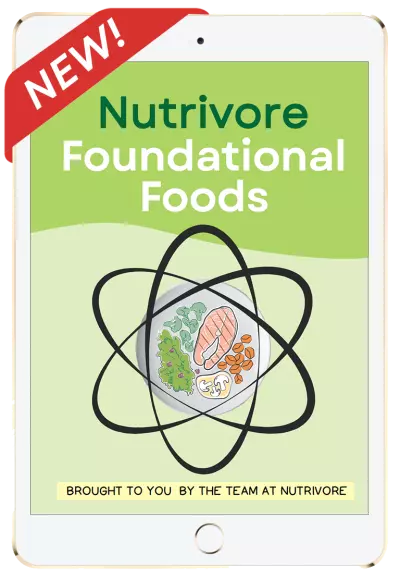
Nutrivore Foundational Foods
Learn what makes the 12 Nutrivore foundational food families nutritionally unique, their health benefits, which options are the most nutrient dense, how much of them to eat, plus various fun facts, practical pointers, and busting of common myths.
This very helpful resource will introduce you to new foods and expand your nutrition knowledge, making food choices easier!
Buy now for instant digital access.
Examples of Cruciferous Vegetables
- arugula
- bok choy
- broccoli
- Brussels sprouts
- cabbage
- cauliflower
- Chinese broccoli
- collard greens
- daikon
- horseradish
- kale
- kohlrabi
- mizuna
- mustard
- radish
- rutabaga
- tatsoi
- turnip
- wasabi
- watercress
Easily track your servings of Nutrivore Foundational Foods!
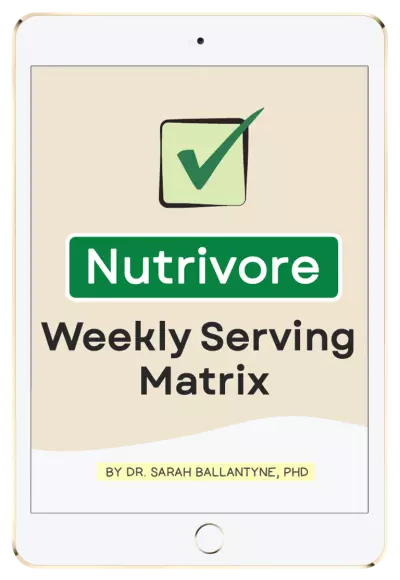
The Nutrivore Weekly Serving Matrix
The Nutrivore Weekly Serving Matrix digital resource is an easy-to-use and flexible weekly checklist designed to help you maximize nutrient-density and meet serving suggestions of Nutrivore foundational foods, all without having to weigh or measure your foods!
Includes a 22-page instructional guide and downloadable interactive guides.
Buy now for instant digital access.
Nutrients in Cruciferous Vegetables
Help me to keep building Nutrivore.com
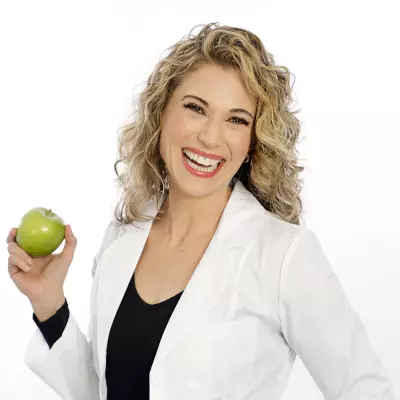
I’m working on writing more awesome articles on this topic to be featured right here on this webpage. If you’re enjoying the content my team and I have created thus far and would like to see more, you can support our efforts to keep building out this site by joining the Nutrivore community on Patreon!
Plus every month, you’ll gain exclusive access to a *NEW* Q&A and behind-the-scenes podcast episode, a new e-book in a series, nutrient fun factsheet, and more! Sign up now and also get 5 free Nutrivore guides as a welcome gift! Win-win-win!
Citations
Expand to see all scientific references for this article.
Bandera EV, Kushi LH, Moore DF, Gifkins DM, McCullough ML. Fruits and vegetables and endometrial cancer risk: a systematic literature review and meta-analysis. Nutr Cancer. 2007;58(1):6-21. doi: 10.1080/01635580701307929.
Hu J, Hu Y, Hu Y, Zheng S. Intake of cruciferous vegetables is associated with reduced risk of ovarian cancer: a meta-analysis. Asia Pac J Clin Nutr. 2015;24(1):101-9. doi: 10.6133/apjcn.2015.24.1.22.
Kirsh VA, Peters U, Mayne ST, Subar AF, Chatterjee N, Johnson CC, Hayes RB; Prostate, Lung, Colorectal and Ovarian Cancer Screening Trial. Prospective study of fruit and vegetable intake and risk of prostate cancer. J Natl Cancer Inst. 2007 Aug 1;99(15):1200-9. doi: 10.1093/jnci/djm065.
Li LY, Luo Y, Lu MD, Xu XW, Lin HD, Zheng ZQ. Cruciferous vegetable consumption and the risk of pancreatic cancer: a meta-analysis. World J Surg Oncol. 2015 Feb 12;13:44. doi: 10.1186/s12957-015-0454-4.
Liu B, Mao Q, Cao M, Xie L. Cruciferous vegetables intake and risk of prostate cancer: a meta-analysis. Int J Urol. 2012 Feb;19(2):134-41. doi: 10.1111/j.1442-2042.2011.02906.x.
Liu B, Mao Q, Lin Y, Zhou F, Xie L. The association of cruciferous vegetables intake and risk of bladder cancer: a meta-analysis. World J Urol. 2013 Feb;31(1):127-33. doi: 10.1007/s00345-012-0850-0.
Liu B, Mao Q, Wang X, Zhou F, Luo J, Wang C, Lin Y, Zheng X, Xie L. Cruciferous vegetables consumption and risk of renal cell carcinoma: a meta-analysis. Nutr Cancer. 2013;65(5):668-76. doi: 10.1080/01635581.2013.795980.
Liu X, Lv K. Cruciferous vegetables intake is inversely associated with risk of breast cancer: a meta-analysis. Breast. 2013 Jun;22(3):309-13. doi: 10.1016/j.breast.2012.07.013.
Navarro SL, Schwarz Y, Song X, Wang CY, Chen C, Trudo SP, Kristal AR, Kratz M, Eaton DL, Lampe JW. Cruciferous vegetables have variable effects on biomarkers of systemic inflammation in a randomized controlled trial in healthy young adults. J Nutr. 2014 Nov;144(11):1850-7. doi: 10.3945/jn.114.197434. Epub 2014 Aug 27.
Wu QJ, Xie L, Zheng W, Vogtmann E, Li HL, Yang G, Ji BT, Gao YT, Shu XO, Xiang YB. Cruciferous vegetables consumption and the risk of female lung cancer: a prospective study and a meta-analysis. Ann Oncol. 2013 Jul;24(7):1918-1924. doi: 10.1093/annonc/mdt119.
Wu QJ, Yang Y, Wang J, Han LH, Xiang YB. Cruciferous vegetable consumption and gastric cancer risk: a meta-analysis of epidemiological studies. Cancer Sci. 2013 Aug;104(8):1067-73. doi: 10.1111/cas.12195.
Wu QJ, Yang Y, Vogtmann E, Wang J, Han LH, Li HL, Xiang YB. Cruciferous vegetables intake and the risk of colorectal cancer: a meta-analysis of observational studies. Ann Oncol. 2013
Zhang X, Shu XO, Xiang YB, Yang G, Li H, Gao J, Cai H, Gao YT, Zheng W. Cruciferous vegetable consumption is associated with a reduced risk of total and cardiovascular disease mortality. Am J Clin Nutr. 2011 Jul;94(1):240-6. doi: 10.3945/ajcn.110.009340. Epub 2011 May 18.
